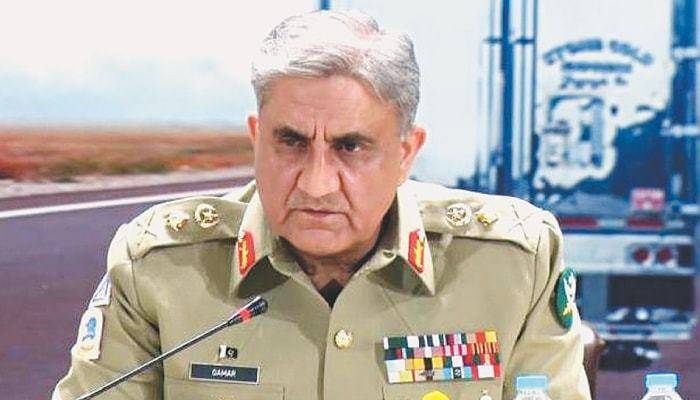Islamabad - Chief of Army Staff General Qamar Javed Bajwa has assured continued efforts for bringing peace and stability in the region.
The assurance came in a meeting with US Special Representative for Afghanistan Reconciliation Zalmay Khalilzad who called on him at GHQ in Rawalpindi on Wednesday and discussed threadbare the regional security and the ongoing Afghan peace process.
A statement issued by the Inter-Services Public Relations (ISPR) said the visiting dignitary appreciated Pakistan’s efforts for Afghanistan peace process.
General Qamar Javed Bajwa reiterated that peace in Afghanistan is important for Pakistan and assured continued efforts for bringing peace and stability in the region.
The development comes two days after Pakistan had arranged crucial peace talks between the United States and Afghan Taliban in the United Arab Emirates (UAE) in a latest push to end the long-drawn conflict in Afghanistan.
“The United States welcomes any actions by the Pakistani government to promote greater cooperation, including fostering negotiations between the Taliban, the Afghan government, and other Afghans,” a US embassy spokesperson was quoted as saying.
According to VOA, the United States and the Taliban have concluded two days of marathon peace talks in the United Arab Emirates, promising to meet again in the Gulf country for another round “to complete the Afghanistan reconciliation process.”
The Afghan “reconciliation conference” in Abu Dhabi, “fructified in tangible results that are positive for all parties concerned,” said the state-run Emirates News Agency in a brief announcement Wednesday.
Zalmay Khalilzad, the special envoy for Afghan reconciliation, led the US team in the meeting, with officials of Saudi Arabia, Pakistan, and the United Arab Emirates also in attendance.
In a message via his office’s official Twitter account, Khalilzad noted he held “productive” meetings with Afghan and international partners in Abu Dhabi “to promote intra-Afghan dialogue towards ending the conflict in Afghanistan.”
Taliban spokesman Zabihullah Mujahid, in a separate statement, said, “Future negotiation meetings shall continue after deliberations and consultations by both sides with their respective leaderships.”
The talks began on Monday and were supposed to last three days, as per earlier official announcements, but neither side explained what prompted them to abruptly end the process.
Afghan government peace negotiators were also present in the vicinity, hoping to join the meeting at some stage, but the Taliban refused to sit with them.
Mujahid said the Taliban’s dialogue was exclusively with the US and “the focal point” of discussions with US interlocutors was the withdrawal of all US and NATO forces from Afghanistan.
The “biggest obstacle to peace is the occupation of Afghanistan and bringing it to an end,” the Taliban spokesman reiterated, while referring to the US-led international military mission.
Mujahid again rejected as groundless reports that issues such as a temporary ceasefire, peace talks with the Kabul administration, installation of an interim Afghan government and future elections also came under discussions with Khalilzad’s team.
He described these issues as Afghanistan’s “internal matters” and went on to assert that Taliban envoys presented “documented information and proof to the participants about indiscriminate bombings against civilians and demanded its immediate halt.”
For their part, Afghan, US and United Nations officials accuse the Taliban of causing a majority of Afghan civilian casualties during battlefield and other insurgent raids.
Mujahid said that Taliban officials also urged US interlocutors to take into consideration “humane treatment of [insurgent] prisoners and their freedom” from Afghan jails.
Khalilzad is said to have urged the Taliban to release an American professor and his Australian colleague who were kidnapped more than two years ago. Kevin King, 60, and Timothy Weeks, 48, from Australia were teaching at Kabul’s American University of Afghanistan (AUAF) before gunmen took them hostage near the campus in August 2016.
Ambassador Khalilzad later visited Pakistan to discuss “regional security” and the “Afghan peace process” with the country’s military chief, General Qamar Javed Bajwa.
After his brief stopover in Pakistan, Khalilzad arrived in neighbouring Afghanistan to update the Afghan leadership on his engagements with regional partners and other interested parties “to reach a negotiated settlement to the conflict,” the US embassy in Kabul said.
When asked about the talks in UAE, a State Department spokesperson told VOA Monday that the meetings were part of US efforts to promote an intra-Afghan dialogue toward ending the conflict. “We welcome any actions the Pakistani government takes to advance security, stability and cooperation in South Asia, including the fostering of negotiations between the Taliban, the Afghan government and other Afghans, the spokesperson said.
The U.S. spokesperson also said a recent letter from US President Donald Trump to Pakistani Prime Minister Imran Khan “emphasised that Pakistan’s assistance with the Afghan peace process is fundamental to building an enduring US-Pakistan partnership.”
Officials in Islamabad have issued a harsh response to the comments by the State Department, saying they believe Washington is trying to downplay Pakistan’s role in bringing the Taliban to the negotiating table in UAE. “(The) US administration has to adopt a more respectful and duly appreciating attitude towards Pakistan if it wants the cooperation to continue with same goodwill. Western media efforts to brush aside Pakistan’s role in bringing authoritative Taliban to direct talks with US must end,” a source in Islamabad told VOA.






